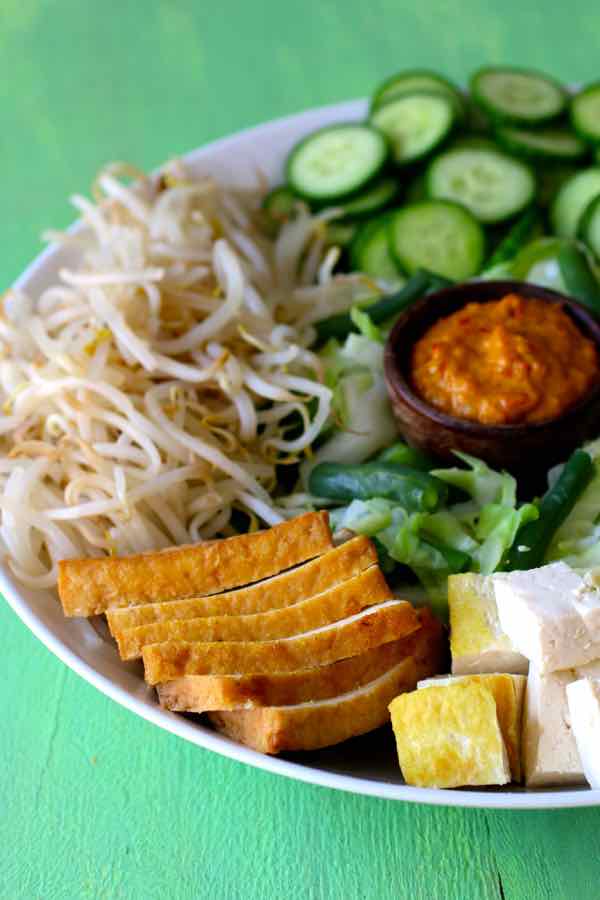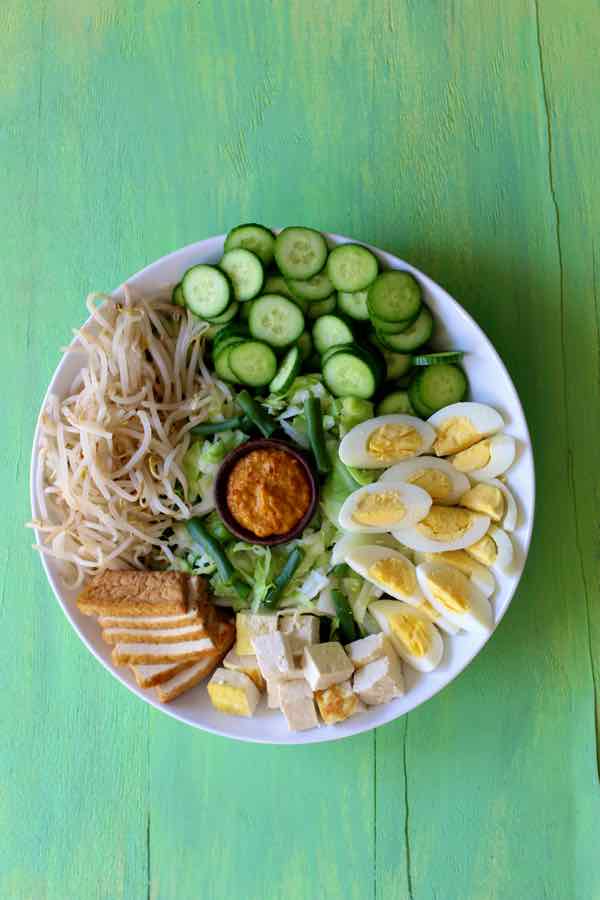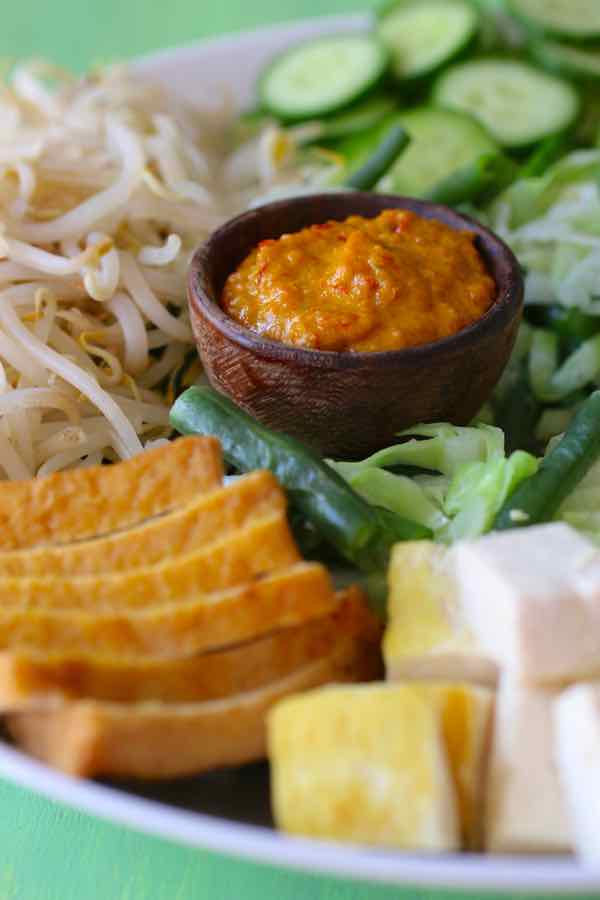
WHAT IS GADO GADO?
Gado-gado (in Bahasa Indonesian or Betawi Malay, the language of Jakarta), also known as lotek (in Sundanese and Javanese), is an Indonesian salad of various blanched or steamed vegetables, also accompanied with hard-boiled eggs, boiled potatoes, fried tofu, tempeh, as well chopped as lontong or ketupat (rice cake), that is served with a spicy peanut sauce dressing.
In Indonesia, it is not really considered a salad but an actual main dish. It is thought to have originally been a Sundanese dish, as it is most prevalent in the Western parts of Java island. However, it is now a common dish throughout Indonesia with each region having its own twist on the traditional recipe.
In Bahasa Indonesia (official language of the country), gado-gado means “mix-mix”, potpourri or medley. Gado comes from the verb menggado, which means “to nibble at the side dishes without the rice”.
HOW TO MAKE GADO GADO
Depending on the version, the salad may include yardlong beans, bean sprouts, spinach, chayote, potato, bitter gourd, corn and cabbage. Proteins include tofu, tempeh and hard-boiled eggs. The salad is served with a spicy peanut sauce and is also sometimes topped with krupuk or emping (deep-fried crackers made with starch or melinjo), as well as bawang goreng (fried shallots).
This vegan salad is similar to other Indonesian recipes such as lotek atah (also called karedok) although the latter uses raw vegetables. It is also very similar to Javanese pecel.
WHAT IS BUMBU KACANG?
The combination of blanched and raw vegetables is important, but the key to a delicious gado-gado is the bumbu kacang, this sauce prepared with fried peanuts, sweet palm sugar, garlic, chili peppers, tamarind and lime.
Bumbu kacang is used in many Indonesian dishes including satay, karedok, ketoprak, asinan and pecel.
The authentic and traditional method to prepare the sauce for this salad is to use a cobek (pestle) and ulekan (flat rounded stone, mortar). The dry ingredients are ground first, then the tamarind extract is added to reach the desired consistency.
THE VARIANTS OF GADO GADO
In East Java (around Surabaya), the dish is called gado-gado Surabaya or Siram. Siram means “pour as food is ordered”. Another version called gado-gado Boplo comes from the area of Jakarta bearing the name. This version uses cashew nuts instead of peanuts for the sauce.
This dish is entirely vegetarian. If you wish to serve it with deep-fried crackers, just opt for kerupuk sayur (vegetable) or emping, which are just made with melinjo nuts.
Recipe Ingredients
- ½ lb green beans (or yardlong beans), cut into 2-inch/5cm pieces and blanched
- ½ lb bean sprouts , blanched
- ½ lb white cabbage , sliced and blanched
- 4 hard-boiled eggs , quartered
- 4 small cucumbers , sliced
- 12 oz. firm tofu
- 12 oz. tempeh
- 2 potatoes , boiled and cubed (optional)
- Lontong or rice cake (optional)
- Krupuk or emping (optional)
- For the sauce
- 2 cups peanuts , unsalted
- 5 cloves garlic , peeled
- 2 red chili peppers seeded and chopped
- 2 oz. palm sugar
- 1 tablespoon tamarind extract
- Juice of 1 lime
- Salt
Recipe Instructions
- First, prepare the sauce by frying the peanuts in a hot pan with a tablespoon of vegetable oil (skip this step if they are roasted). Stir frequently for a few minutes until they get lightly brown.
- Mix the peanuts, garlic and chili with a mortar and pestle or in a blender to obtain a homogeneous paste.
- In a saucepan, combine the processed mixture with the tamarind extract, lime juice and water (about ¼ cup/60 ml). Continue simmering to reach the desired consistency for about 5 minutes. Remove from the heat.
- Cut tofu in 1-inch (2,5 cm)cubes. Fry the tofu in a pan with hot vegetable oil to lightly brown them on all the sides.
- Slice the tempeh and fry it for a few minutes.
- Arrange all the ingredients on a plate and serve with the peanut sauce.
Categories: Breakfast, Healthy Recipes, Salads


Leave a Reply